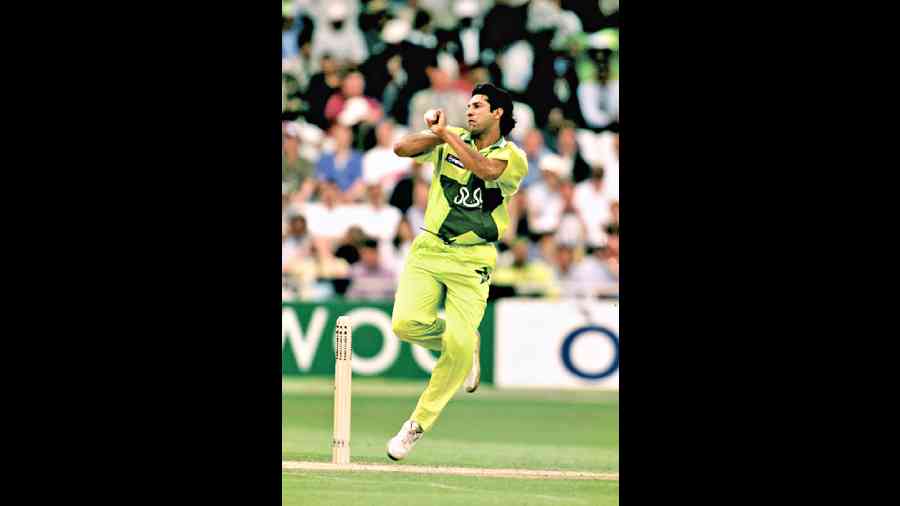Book: Sultan: A Memoir
Author: Wasim Akram with Gideon Haigh
Publisher: HarperCollins
Price: ₹699
More than 20 years after he played his last Test, Wasim Akram decided to pen his memoir with the veteran cricket writer, Gideon Haigh. Memoirs generally tend to hide more than they disclose. But this one is a candid revelation of events in the complex and turmoil-laden world of Pakistan cricket — Akram played under 13 different captains. Here, one of the greatest fast-bowlers also reveals his fling with cocaine and his struggles to handle fame, the impact his first wife, Huma, had on his life, and finding love again with the Australian, Shaniera Thompson.
Akram admits his career owes everything to two of Pakistan’s greatest cricketers — Imran Khan and Javed Miandad. While Miandad is credited with finding him, Imran moulded him into one of the world’s best all-rounders. Later in his career, he fell out with Miandad occasionally but remained loyal and grateful to Imran. He describes Imran as his guru and messiah; almost half of the book is dedicated to him. Akram was so overwhelmed by Imran’s “presence” and “beauty” on their first meeting in Australia that he hardly remembered much about the conversation. From learning the craft of polishing the ball to the art of reverse swing, Imran tutored him in every walk of life. Even after Imran’s retirement, Akram sought his advice, especially at times when as captain he struggled to tackle the unrest in the team. Not just his bowling, Imran also shaped his batting, inspiring him to his first Test century at the Adelaide Oval.
He also makes clear his disdain for Saleem Malik, who was banned for life for match-fixing following a judicial inquiry in 2000. Malik, his first roommate on an international tour, treated him “like a servant.” He describes Malik as “sneaky, untrustworthy and often unpleasant to deal with” despite saluting his cricket brain. Not surprisingly, he was nicknamed ‘Rat’ by Imran.
Akram recounts how he discovered Waqar Younis during a domestic limited-overs match and convinced Imran to have a look.
Akram was proud to have spotted Waqar with whom he developed a lethal combination before realising that as his deputy, Waqar created a centre of power in the team. But then, it was improper to blame Waqar alone since Akram felt vice-captains were “seldom supportive, often ambitious and sometimes mischievous” in Pakistan cricket.
The book details the dark days of match-fixing and how players like Malik, Rashid Latif and Aamir Sohail created an environment of distrust in the team. He talks about receiving calls to underperform in Sharjah in 1994 amid fixing allegations during the Singer Trophy in Sri Lanka. He could feel a “sense of unease and mutual suspicion” and claimed he always gave his 100 per cent. He recalls a rift-ridden dressing room where players hardly looked at each other because of an unearthly feeling.
Akram maintains he never got wind of the unscrupulous practices which are open to debate. His pulling out before the start of the quarter-final against India in Bangalore during the 1996 World Cup stirred a controversy but Akram insists it was unavoidable because of an intercostal injury. He claims it was known at least three days before the match that he couldn’t play, even with a heavy dose of painkillers, but was kept a secret for fear of buoying their arch-rival.
There are minor flaws like mixing up the hotel locations — Taj Lands End (Mumbai) and Taj Palace (New Delhi) — but this is an honest attempt by the Sultan of Swing to bare the facts and clear the air about preconceived notions.











